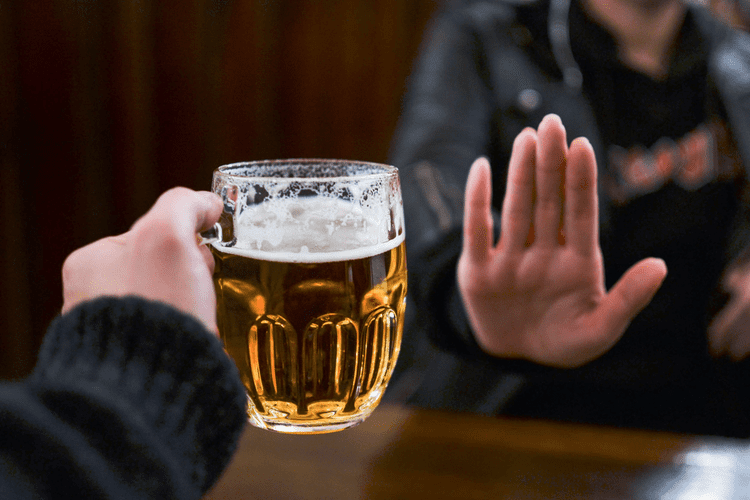Alcohol Addiction: Signs, Complications, and Recovery
GABA is an inhibitory neurotransmitter that induces feelings of relaxation and calm, while glutamate serves as an excitatory neurotransmitter that increases neuronal activity. Alcohol enhances GABA’s effects, leading to sedative and anxiolytic effects. This state of euphoria and relaxation creates an appealing experience for users, reinforcing the behavior of consuming alcohol repeatedly.
What are the potential risks of sudden alcohol withdrawal?
Research has shown that there is a genetic component to alcohol addiction. Individuals with a family history of alcoholism are at a higher risk of developing the condition themselves. Specific genetic factors may make some people more susceptible to the alcohol’s addictive properties. Understanding one’s family history can be crucial in recognizing and addressing this risk. First and foremost, Ambrosia Behavioral Health distinguishes itself through its comprehensive, evidence-based treatment methodologies. By employing a blend of detoxification, individual therapy, group therapy, and family counseling, Ambrosia ensures that each patient receives a tailored treatment plan suited to their unique situation.
What Are the Symptoms of Alcohol Addiction?
BAC measurements can be utilized in medical settings to measure the severity of alcohol intoxication and monitor withdrawal symptoms. They can also inform treatment decisions for individuals suffering from alcohol-related disorders, especially in the event of an emergency admission while under the influence. Another risk less often discussed is that some people will skip a dose of their antidepressant in order to drink alcohol more safely. Without medication, some people with depression are at risk of self-harm. Ongoing counseling and treatment with medicines can also play a role.

Physical and Psychological Symptoms
- Our Treatment Advisors are available 24 hours a day to help you or a loved one access care.
- Early drinking can also affect the brain’s ability to learn from mistakes and rewards, making it challenging to stop drinking even when there are adverse consequences.
- This type of program is ideal for people who have recently completed an inpatient or partial hospitalization program and are also stepping down from an intensive outpatient program.
- Long-term alcohol abuse forces the brain to adapt to this increased inhibition.
Comprehending dopamine’s role in alcohol addiction enables individuals to make well-informed decisions about their drinking habits and seek assistance why is alcohol addictive when required. Frequent binge drinking, defined as consuming excessive amounts of alcohol in a short period, significantly increases the risk of developing an alcohol use disorder. Additionally, drinking to cope with stress, anxiety or emotional pain is a fast track to dependency. When alcohol is used as a crutch rather than for social enjoyment, the brain becomes conditioned to crave it in stressful situations, leading to faster addiction development.

You receive extensive therapy and develop the skills, thought patterns, and perspectives that will empower you to stay sober. According to the 2023 NSDUH, nearly half (49.6%) of young adults ages 18 to 25 reported drinking alcohol in the past month. People who use alcohol and marijuana simultaneously have higher THC levels than people using marijuana alone.
Are You Born With Alcoholism? Genetic Inheritance vs. Behavioral Inheritance
We specialize in compassionate, evidence-based care tailored to your needs. Whether you’re seeking help for yourself or a loved one, we’re here to guide you every step of the way. Quitting alcohol completely can be a challenge, but there are more ways to do it than ever before. alcohol rehab Alcohol is legal in the United States and more accessible than other drugs.
Researchers have also discovered that people who have substance use disorders have similar gene groups — ones not found in those who don’t abuse alcohol and drugs. The brain mediates our motivation to repeat behaviors that lead to pleasurable, rewarding states or reduce uncomfortable, distressing physical or emotional states. In this context, drinking alcohol can be motivated by its ability to provide both relief from aversive states and reward. These dual, powerful reinforcing effects help explain why some people drink and why some people use alcohol to excess.

Alcohol Addiction Symptoms and Knowing When To Ask for Help
As with other addictive behaviors, alcoholism is a learned behavior that is influenced by a person’s thoughts and beliefs. People who don’t believe in treatment and recovery are less likely to make the effort required to successfully complete treatment. The symptoms of stress can also contribute to addiction, with the use of alcohol becoming a temporary and unhealthy way to cope.